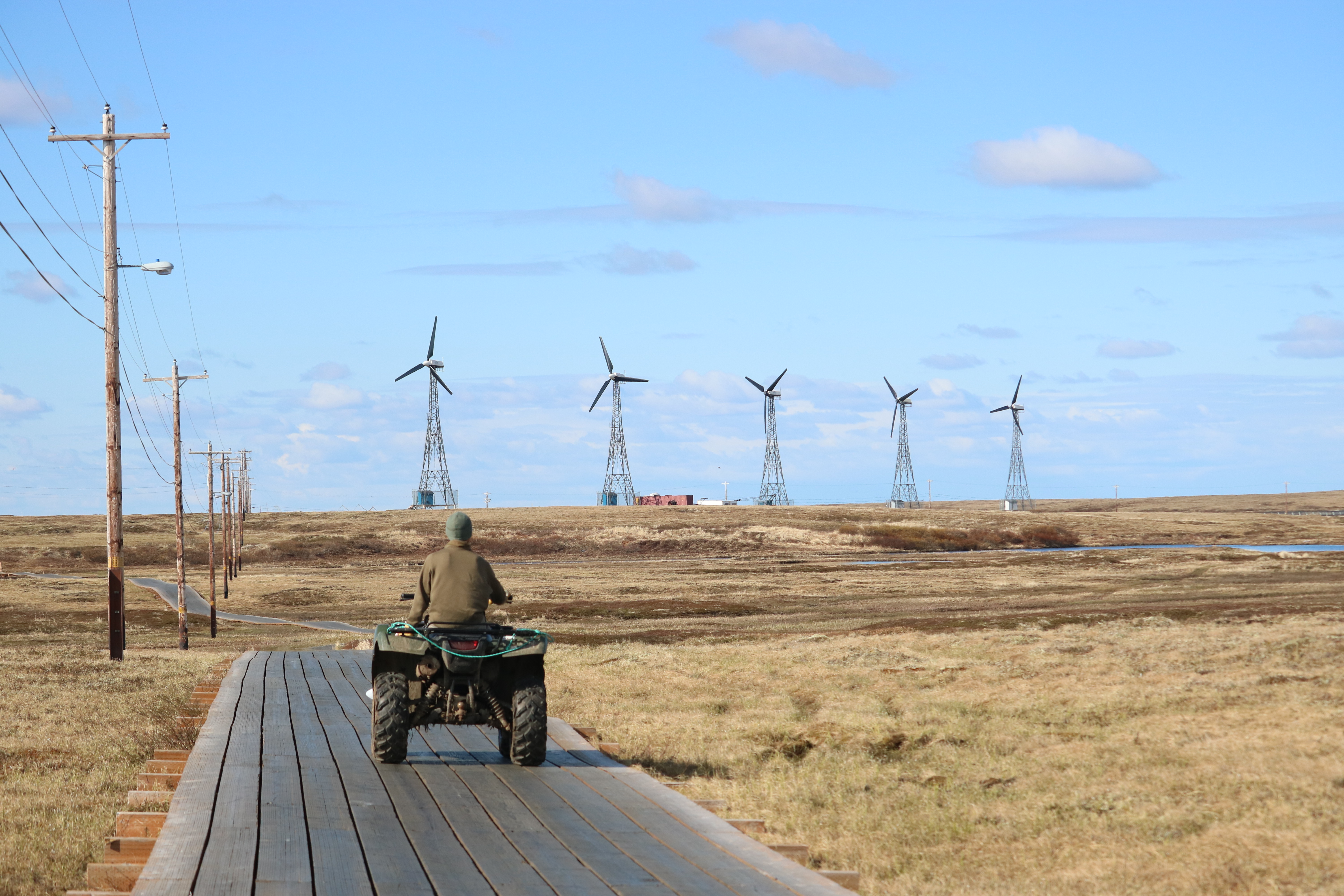ACEP Biomass Coordinator Finds Success Story in Kongiganak

Last week ACEP’s Biomass Coordinator, Amanda Byrd, traveled to the remote community of Kongiganak on the Yukon-Kuskokwin Delta. A series of connected boardwalks form the road system in the Yup’ik tundra village, and five wind turbines spin generating electricity for the community of 674 year-round residents.
Kongiganak’s Puvurnaq Power Company offsets up to 40% of their diesel for electricity generation with energy from five 95 kW wind turbines installed in 2010.
In addition to the turbines, 20 Steffe thermal storage stoves installed in residences in the community, with another 30 stove installations currently underway, offset at least 50% of residential heating fuel use.
The thermal stoves, remotely controlled by the Kongiganak Power Plant, use electricity generated by the wind turbines in combination with the 275 kW diesel generator. When electricity generation is in excess of the community’s baseload needs, a portion of the excess power is sent to heat bricks inside the stoves, reducing the need to burn diesel fuel which costs $5 a gallon. The electricity used to heat the thermal stoves is sold at a rate of 10 cents per kWh, which equates to diesel fuel at $2.95 a gallon. This is an equivalent savings of $2.05 per gallon.
The benefit of the electricity-powered thermal storage is directly felt by the household with heating fuel that would normally last only 2 weeks now lasts up to 6 weeks. The savings on the avoided heating fuel costs goes straight to the feeding the families who maintain the traditional Yup’ik subsistence lifestyle of hunting seal, walrus, moose, caribou, seabirds and more.
Kongiganak, a community on boardwalks, is powered in part by five 95 kW wind turbines. Photo by A. Byrd/ACEP.


